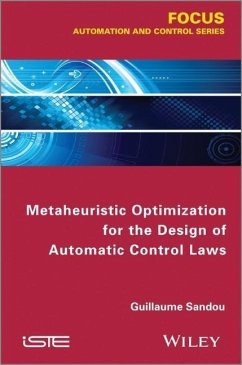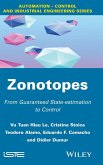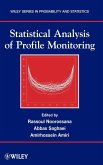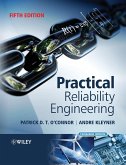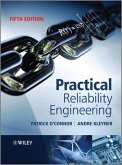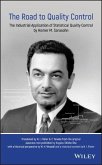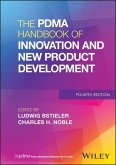The classic approach in Automatic Control relies on the use of simplified models of the systems and reformulations of the specifications. In this framework, the control law can be computed using deterministic algorithms. However, this approach fails when the system is too complex for its model to be sufficiently simplified, when the designer has many constraints to take into account, or when the goal is not only to design a control but also to optimize it. This book presents a new trend in Automatic Control with the use of metaheuristic algorithms. These kinds of algorithm can optimize any criterion and constraint, and therefore do not need such simplifications and reformulations.
The first chapter outlines the author's main motivations for the approach which he proposes, and presents the advantages which it offers. In Chapter 2, he deals with the problem of system identification. The third and fourth chapters are the core of the book where the design and optimization of control law, using the metaheuristic method (particle swarm optimization), is given. The proposed approach is presented along with real-life experiments, proving the efficiency of the methodology. Finally, in Chapter 5, the author proposes solving the problem of predictive control of hybrid systems.
Contents
1. Introduction and Motivations.
2. Symbolic Regression.
3. PID Design Using Particle Swarm Optimization.
4. Tuning and Optimization of H-infinity Control Laws.
5. Predictive Control of Hybrid Systems.
About the Authors
Guillaume Sandou is Professor in the Automatic Department of Supélec, in Gif Sur Yvette, France. He has had 12 books, 8 journal papers and 1 patent published, and has written papers for 32 international conferences.His main research interests include modeling, optimization and control of industrial systems; optimization and metaheuristics for Automatic Control; and constrained control.
Hinweis: Dieser Artikel kann nur an eine deutsche Lieferadresse ausgeliefert werden.
The first chapter outlines the author's main motivations for the approach which he proposes, and presents the advantages which it offers. In Chapter 2, he deals with the problem of system identification. The third and fourth chapters are the core of the book where the design and optimization of control law, using the metaheuristic method (particle swarm optimization), is given. The proposed approach is presented along with real-life experiments, proving the efficiency of the methodology. Finally, in Chapter 5, the author proposes solving the problem of predictive control of hybrid systems.
Contents
1. Introduction and Motivations.
2. Symbolic Regression.
3. PID Design Using Particle Swarm Optimization.
4. Tuning and Optimization of H-infinity Control Laws.
5. Predictive Control of Hybrid Systems.
About the Authors
Guillaume Sandou is Professor in the Automatic Department of Supélec, in Gif Sur Yvette, France. He has had 12 books, 8 journal papers and 1 patent published, and has written papers for 32 international conferences.His main research interests include modeling, optimization and control of industrial systems; optimization and metaheuristics for Automatic Control; and constrained control.
Hinweis: Dieser Artikel kann nur an eine deutsche Lieferadresse ausgeliefert werden.

